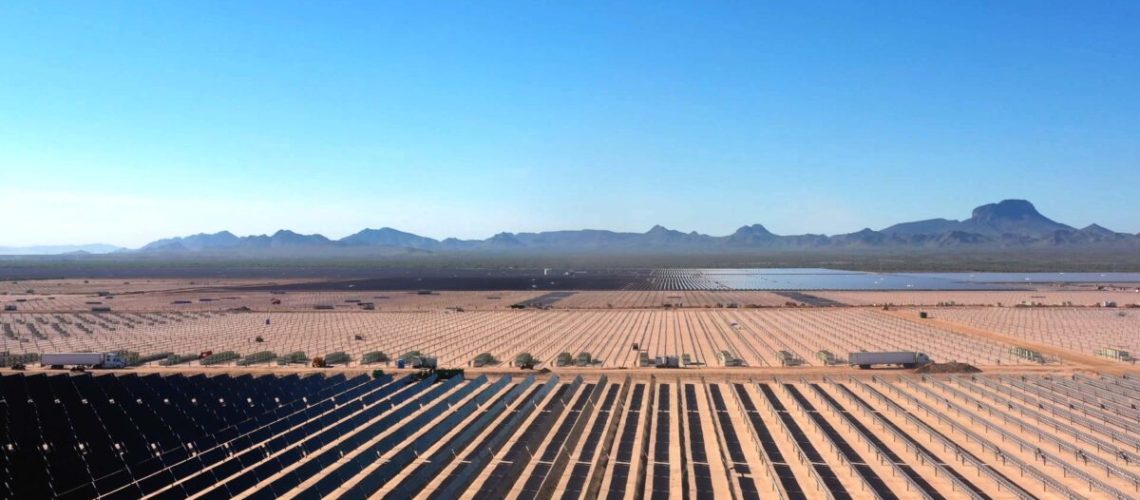Solar assets that export electricity out of the state would be taxed 12.5% per every dollar of revenue made from the sale of electricity.
Arizona’s Senate Committee on Natural Resources approved in a 3-2 vote to move forward SB 1066, establishing a solar royalties fund that would tax solar generated electricity exported from the state. It now moves to the state Senate for a vote.
The bill would require the owner or operator of solar assets to pay 12.5% per $1 of revenue earned for the sale of electricity exported out of the state. Each county would have its board of supervisors administer the program and collect the funds.
Funds would then be redistributed equally to residents in the county. This structure is similar to the oil export tax in Alaska, which cut a check of $1,312 to each resident last year.
This law would apply specifically to solar assets that deliver power to utilities outside the state. Residential rooftop solar, commercial and industrial on-site solar, off-grid solar, and solar owned by a public service corporation regulated by the Arizona Corporation Commission (like APS or SRP) would be exempt from the tax.
Proponents of the bill said it would compensate Arizona residents for the harm created by companies that “exploit the land.”
Senator Priya Sundareshan, a Democrat from Tucson, argued that creating a tax on renewable energy that mimics Alaska’s oil dividend creates a false equivalency.
“Mining and oil and gas, these are all extractive industries that will result in some level of disturbance to the land, that is fundamentally pollution, impacts to the water quality,” she said. “There’s a lot more that goes into the extraction of oil and gas and other mining industries than, let’s say, passively sitting and letting the sun fall onto a solar panel.”
White Mountain Independent reported that Stan Barnes, a lobbyist for the Interwest Energy Alliance, argued that the law runs the risk of creating a trade war with other states. Taxing power delivered to a utility in another state would effectively push the cost onto the ratepayers in that state, he argued.
“More than one state can play this game,” said Barnes. “If other states did what Sen. Borrelli is proposing … our rates go up. It’s a bad game to play, it’s a trade war starting, anti-business kind of thing that Arizona would lose.”
Find the full bill and relevant proceedings and documentation here.



